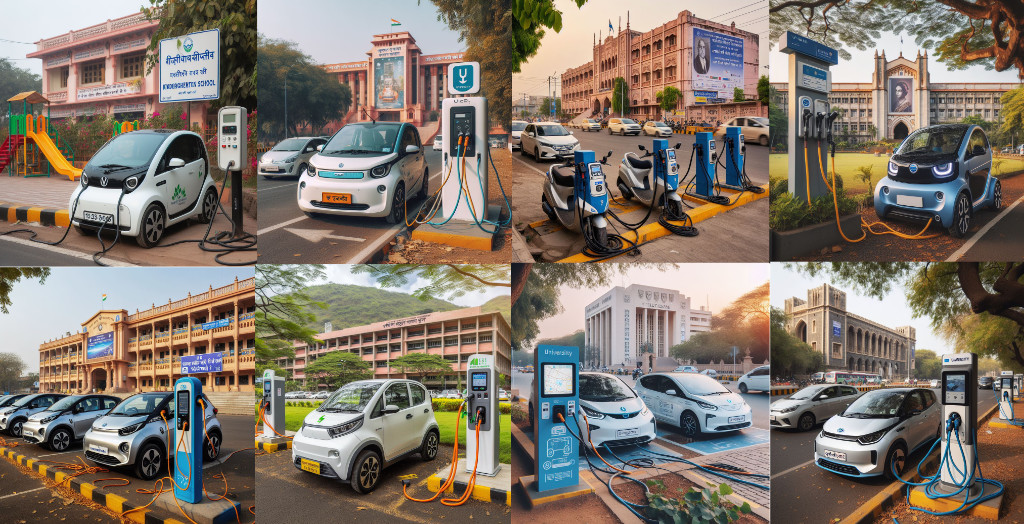
EV Charging Solutions for Education Sector:
Electric vehicles (EVs) are becoming more popular in India due to their environmental and economic benefits. However, one of the main challenges for EV owners is finding a convenient and reliable place to charge their vehicles. This is especially true for students and staff who need to commute to schools and universities, where they may spend several hours studying, working, or participating in extracurricular activities. Installing electric vehicle chargers for schools and universities can not only help the EV owners, but also the schools and universities themselves, as well as the society at large. Here are some of the advantages of installing electric vehicle chargers for schools and universities:
Promoting sustainability: One of the key advantages of installing EV charging stations on campuses is the promotion of sustainability. As the younger generation becomes more environmentally conscious, educational institutions have a responsibility to lead by example. By providing the infrastructure necessary for students and staff to charge their EVs conveniently, campuses can encourage sustainable transportation options and reduce greenhouse gas emissions. This initiative aligns with broader sustainability goals set by schools and universities and demonstrates a commitment to environmental stewardship.
Enhancing convenience and accessibility: Having EV charging stations readily available on campus provides students and staff with a hassle-free charging experience. They no longer need to worry about finding a charging station off-campus or taking detours to refuel their vehicles. By strategically placing charging stations throughout the campus, they can conveniently charge their EVs while attending classes, studying, working, or participating in extracurricular activities. This added convenience relieves range anxiety and encourages more students and staff to make the switch to electric vehicles.
Saving costs: While the initial investment in electric vehicle charging infrastructure might seem significant, schools and universities stand to gain long-term financial benefits. They can generate revenue by offering charging services to students, staff, visitors, and the general public. These funds can be reinvested into educational programs, research projects, or other critical initiatives. Additionally, the operational cost of electric vehicles is lower compared to traditional internal combustion engine vehicles, offering potential savings on transportation expenses for school-owned or university-owned vehicles.
Creating learning opportunities: Electric vehicle chargers on campus not only provide a practical benefit but also present valuable learning opportunities. Schools and universities can integrate these installations into their curriculum, offering courses or workshops focused on EV technology, renewable energy, and sustainable transportation. This approach empowers students and staff with the knowledge and skills required for future careers in the rapidly expanding green technology sector. By immersing them in this emerging field, schools and universities prepare them for the sustainable workforce of tomorrow.
Attracting and retaining sustainability-minded students and staff: Installing electric vehicle chargers can also help schools and universities attract and retain sustainability-minded students and staff. As more people become aware of the environmental and economic benefits of electric vehicles, they may prefer to join or stay with educational institutions that support their values and choices. By offering electric vehicle chargers on campus, schools and universities can show that they are modern, progressive, and environmentally conscious.
In conclusion, installing electric vehicle chargers for schools and universities would have multiple benefits for the EV owners, the schools and universities, and the society at large. It would provide sustainability, convenience, cost savings, learning opportunities, and attraction for all parties involved. Therefore, it is advisable for schools and universities to consider investing in electric vehicle charging infrastructure as soon as possible.
